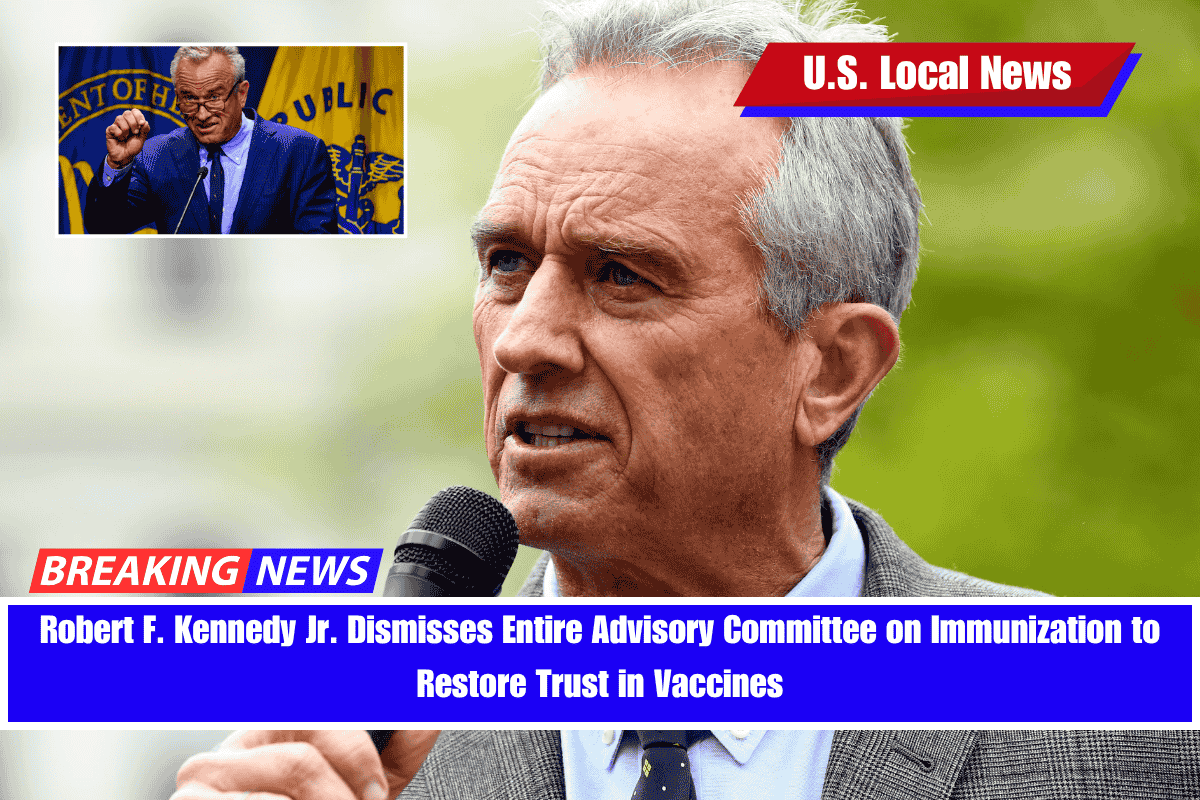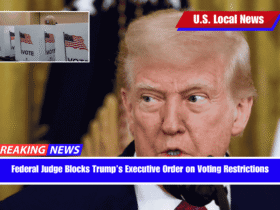Health Secretary Robert F. Kennedy Jr. made headlines on Monday by announcing the removal of all 17 members from the Advisory Committee on Immunization Practices (ACIP) at the Centers for Disease Control and Prevention (CDC).
Kennedy’s controversial decision, outlined in an opinion column for The Wall Street Journal, is aimed at restoring public trust in vaccines and reshaping the approach to immunization policy in the U.S.
Kennedy’s Reasons for the Dismissals
Kennedy, known for his vaccine skepticism, argued that the CDC’s advisory committee had been plagued by persistent conflicts of interest. He stated that the public needs to be confident that vaccine recommendations are based on unbiased science, ensuring the safety of vaccines.
According to Kennedy, ACIP members’ alleged financial ties to the pharmaceutical industry had compromised their ability to offer impartial advice on vaccinations.
Kennedy previously claimed that 97% of ACIP members had financial conflicts of interest, but this statistic was based on a 2009 report, which was later found to contain errors, such as missing dates and incorrect disclosures.
Despite these findings, Kennedy reiterated his position, calling for a restructured advisory panel that would align more closely with his views on immunization.
The Role and Influence of the ACIP
The ACIP plays a crucial role in determining which vaccines are recommended for the public, particularly for children. Their recommendations influence insurance coverage, and their decisions shape public health policies.
The committee reviews extensive data on vaccines, debates the evidence, and votes on vaccine recommendations. Therefore, changes to this panel could have significant implications for the vaccines that Americans receive, especially for childhood immunizations.
Pushback from the Medical Community
Kennedy’s decision to remove the entire ACIP panel has drawn sharp criticism from medical professionals and public health experts. Dr. Paul Offit, a prominent advisor to the Food and Drug Administration (FDA), condemned the move, calling Kennedy a “conspiracy theorist” who is spreading unfounded fears about the pharmaceutical industry’s influence.
Offit argued that Kennedy’s views on vaccine safety have been consistently misleading for over two decades, particularly his repeated claims about the undue influence of “Big Pharma.”
The medical community has pointed out that ACIP members are rigorously vetted for conflicts of interest. They are not allowed to hold stocks or serve on advisory boards or speaker bureaus of vaccine manufacturers.
If any member has indirect conflicts of interest, such as if their institution receives funding from a pharmaceutical company, they are required to disclose these conflicts and recuse themselves from related votes.
Implications for Immunization Policy
Kennedy’s move to remove the ACIP members is part of a broader effort to reshape U.S. immunization policy. By replacing current members with individuals who may share his more skeptical views on vaccines, Kennedy has the potential to alter vaccine recommendations significantly.
This could include revisiting childhood vaccination schedules and potentially making changes to vaccine mandates, which would have wide-reaching effects on public health.
As the head of the Department of Health and Human Services, Kennedy has the authority to add or remove members of the ACIP.
Without these changes, the Trump administration would not have been able to appoint a majority of new committee members until 2028, Kennedy explained. His decision may set the stage for a long-term shift in U.S. vaccination policy.











Leave a Reply